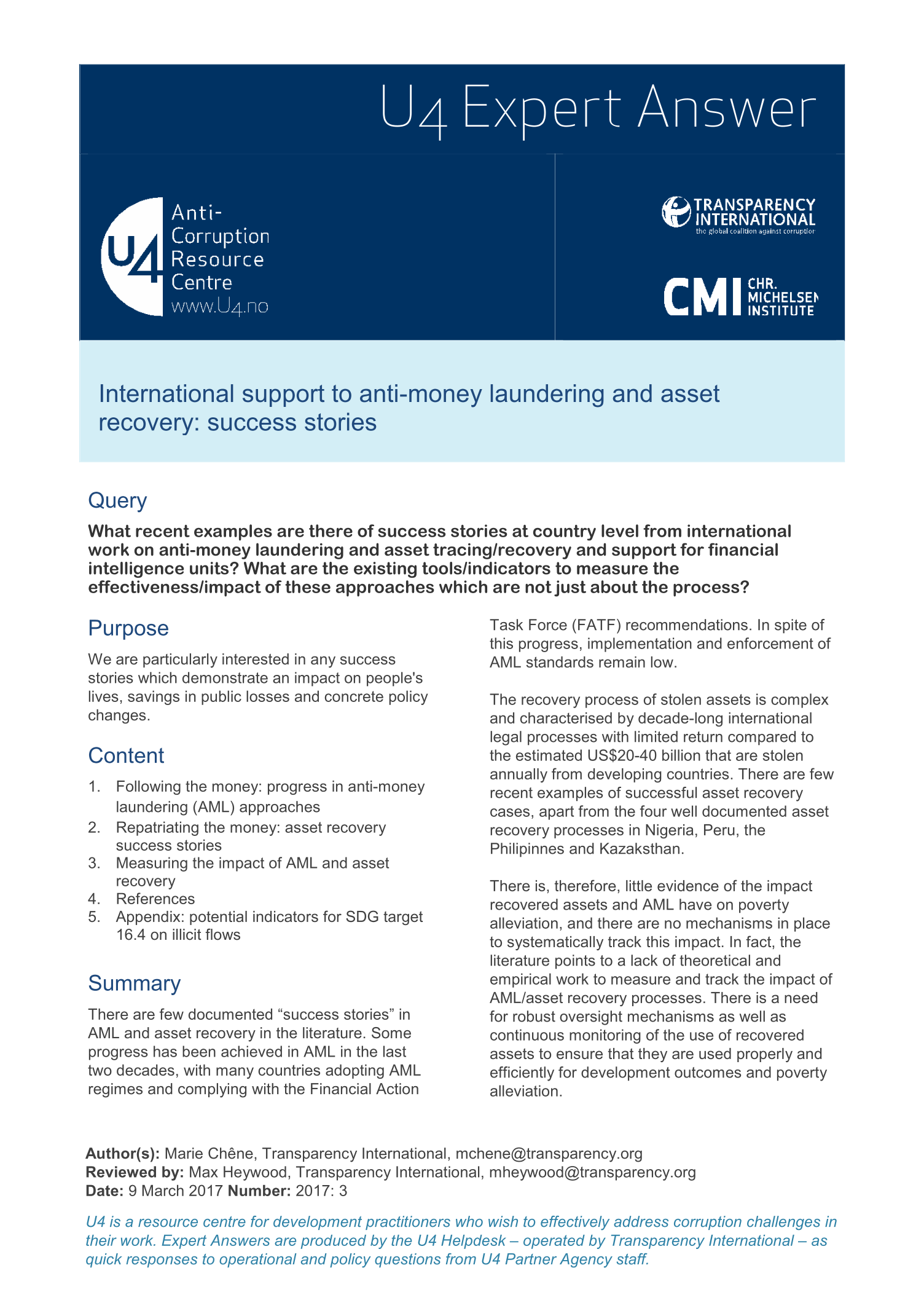U4 Helpdesk Answer
International support to anti-money laundering and asset recovery: success stories
There are few documented “success stories” in anti-money laundering (AML) and asset recovery in the literature. Some progress has been achieved in AML in the last two decades, with many countries adopting AML regimes and complying with the Financial Action Task Force (FATF) recommendations. In spite of this progress, implementation and enforcement of AML standards remain low.
The recovery process of stolen assets is complex and characterised by decade-long international legal processes with limited return compared to the estimated US$20-40 billion that are stolen annually from developing countries. There are few recent examples of successful asset recovery cases, apart from the four well documented for financial intelligence units processes in Nigeria, Peru, the Philipinnes and Kazaksthan.
There is, therefore, little evidence of the impact recovered assets and AML have on poverty alleviation, and there are no mechanisms in place to systematically track this impact. In fact, the literature points to a lack of theoretical and empirical work to measure and track the impact of AML/asset recovery processes. There is a need for robust oversight mechanisms as well as continuous monitoring of the use of recovered assets to ensure that they are used properly and efficiently for development outcomes and poverty alleviation.

Cite this publication
Chêne, M. (2017) International support to anti-money laundering and asset recovery: success stories . Bergen: U4 Anti-Corruption Resource Centre, Chr. Michelsen Institute (U4 Helpdesk Answer 2017:3)
Disclaimer
All views in this text are the author(s)’, and may differ from the U4 partner agencies’ policies.
This work is licenced under a Creative Commons Attribution-NonCommercial-NoDerivatives 4.0 International licence (CC BY-NC-ND 4.0)

